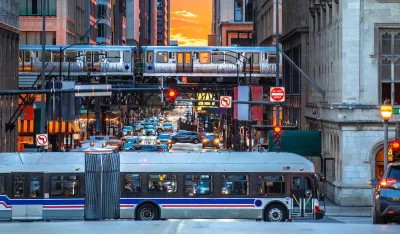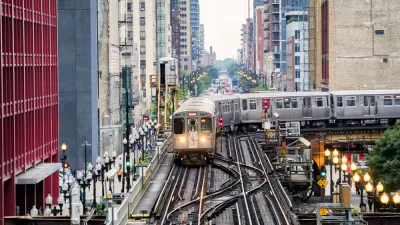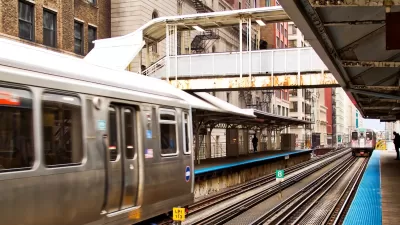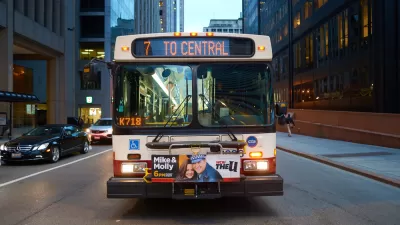Without additional funding, regional transit agencies will be forced to cut services by 40 percent.

The Regional Transportation Authority (RTA) of Northern Illinois, which serves the Chicago metro area, faces a devastating $770 million budget shortfall without additional funding from the state, officials warn.
“According to the agency, the lack of funding would end all weekend bus service for Pace and eliminate early morning and late evening service for Metra, wiping out nearly 3,000 transit jobs and delivering a devastating blow to the regional economy,” states an article in Mass Transit. The agency estimates the region would lose $2.6 billion in annual GDP due to the cuts.
Regional transit agencies including the Chicago Transit Authority, Metra, and Pace could see service cuts of up to 40 percent. “According to RTA, planning for cuts would begin immediately following the end of session if sustainable funding is not secured, with community meetings and public hearings held in the fall before initial cuts are included in the agencies’ 2026 budgets.”
RTA Executive Director Leanne Redden called the crisis “a regional emergency,” noting that “If the general assembly does not act this spring, hundreds of thousands of Illinoisans will wake up in 2026 without a way to get to work, school or medical appointments with continued uncertainty in future years about their transit services.”
CTA officials say the funding gap would cause it to reduce or eliminate service on half of its rail lines, impacting service at over 50 stations, and eliminate as many as 74 of its 127 bus lines. “CTA would go from one of the largest transit systems in the country to having fewer bus routes than Madison, Wis., and Kansas City, Mo.” Similar cuts would happen at Metra, which would likely eliminate early morning and late evening trains and reduce weekday service to once per hour. Pace riders in transit-dependent suburbs could see all weekend bus service eliminated in addition to reduced nighttime service and longer headways.
FULL STORY: Chicago transit agencies facing potential $770 million 2026 budget shortfall by spring

Alabama: Trump Terminates Settlements for Black Communities Harmed By Raw Sewage
Trump deemed the landmark civil rights agreement “illegal DEI and environmental justice policy.”

Study: Maui’s Plan to Convert Vacation Rentals to Long-Term Housing Could Cause Nearly $1 Billion Economic Loss
The plan would reduce visitor accommodation by 25% resulting in 1,900 jobs lost.

Why Should We Subsidize Public Transportation?
Many public transit agencies face financial stress due to rising costs, declining fare revenue, and declining subsidies. Transit advocates must provide a strong business case for increasing public transit funding.

Wind Energy on the Rise Despite Federal Policy Reversal
The Trump administration is revoking federal support for renewable energy, but demand for new projects continues unabated.

Passengers Flock to Caltrain After Electrification
The new electric trains are running faster and more reliably, leading to strong ridership growth on the Bay Area rail system.

Texas Churches Rally Behind ‘Yes in God’s Back Yard’ Legislation
Religious leaders want the state to reduce zoning regulations to streamline leasing church-owned land to housing developers.
Urban Design for Planners 1: Software Tools
This six-course series explores essential urban design concepts using open source software and equips planners with the tools they need to participate fully in the urban design process.
Planning for Universal Design
Learn the tools for implementing Universal Design in planning regulations.
Caltrans
Smith Gee Studio
Institute for Housing and Urban Development Studies (IHS)
City of Grandview
Harvard GSD Executive Education
Toledo-Lucas County Plan Commissions
Salt Lake City
NYU Wagner Graduate School of Public Service





























